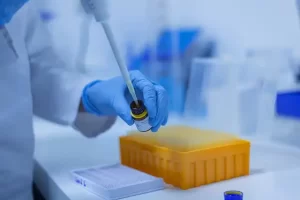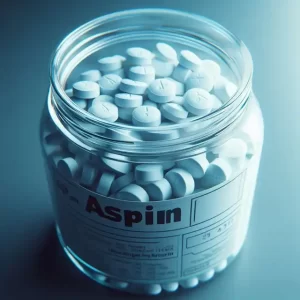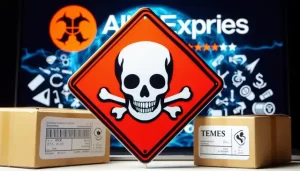Potential Food Safety Blind Spots in Fast-Food Soda Machines
- Early Biomarker for Multiple Sclerosis Development Identified Years in Advance
- Aspirin Found Ineffective in Improving Recurrence Risk or Survival Rate of Breast Cancer Patients
- Child Products from Aliexpess and Temu Contain Carcinogens 3026x Over Limit
- Daiichi Sankyo/AstraZeneca’s Enhertu Shows Positive Results in Phase III DESTINY-Breast06 Clinical Trial
- Mn007 Molecules Offer Potential for Combating Streptococcus pyogenes Infection
- Popular Indian Spices Banned in Hong Kong Over Carcinogen Concerns
Potential Food Safety Blind Spots in Fast-Food Soda Machines
- AstraZeneca Admits for the First Time that its COVID Vaccine Has Blood Clot Side Effects
- Was COVID virus leaked from the Chinese WIV lab?
- HIV Cure Research: New Study Links Viral DNA Levels to Spontaneous Control
- FDA has mandated a top-level black box warning for all marketed CAR-T therapies
- Can people with high blood pressure eat peanuts?
- What is the difference between dopamine and dobutamine?
- How long can the patient live after heart stent surgery?
Researchers Issue Warning: Potential Food Safety Blind Spots in Fast-Food Soda Machines.
Researchers from Lomalinda University have uncovered microbial contamination in drinking water sources in the eastern Coachella Valley, with 41% of soda machine samples found to contain harmful bacteria.
This study underscores the importance of maintaining and more rigorously managing clean drinking water in underserved areas. The study authors recommend regular cleaning of soda dispensers.
Lomalinda University (LLU) researchers detected microbial contamination in common drinking water sources in the eastern Coachella Valley, including soda dispensers at fast-food restaurants.
Their findings indicate that 41% of water samples collected from these soda machines contained total coliforms, which are indicators of water contamination.
Molecular analysis of the water samples revealed the presence of trace genetic material in the bacteria, including Salmonella spp, Pseudomonas aeruginosa, and Escherichia coli.
Given these findings, the authors of the research report advise owners of soda machines to regularly clean and flush their dispensers to prevent water contamination.

First-of-Its-Kind Study
“Our study represents the first assessment of water quality in soda machines, vending machines, swabs, and tap water, particularly in the eastern region of the Coachella Valley,” said Dr. Thomas Hile, the lead author of the study and an affiliated researcher at the University of London. This marks the first evaluation of water quality in soda machines, vending machines, swabs, and tap water. The study, titled “Microbial Contamination Analysis of Bulk Water Dispensers and Fast-Food Restaurant Drinking Water in the Eastern Coachella Valley, California,” was published last month in the peer-reviewed journal “Water” by the International Water Association.
Dr. Thomas Hile, a Ph.D. and M.Sc. in Science, is pictured preparing water samples in the laboratory. He is the lead author of a recent study that found microbial contamination in fast-food restaurant soda machines. Source: Lomalinda University School of Public Health
Study Methods and Results
Researchers collected 72 water samples from soda machines at fast-food restaurants, vending machines, and outdoor tap water sources in the eastern Coachella Valley. They conducted on-site measurements of physical and chemical parameters and performed routine culturing methods and molecular analysis on the samples in the laboratory.
The analysis of the water samples revealed the presence of biofilms—structured communities of microorganisms widespread in natural, industrial, and medical environments, causing significant issues. In some cases, bacterial counts in soda samples exceeded the maximum allowable levels set by environmental protection agencies.
The authors noted in the journal article, “The presence of pathogenic microorganisms in drinking water is a serious public health concern that cannot be overstated.”
Biofilms and Water Contamination
Based on the research findings, the study team believes that biofilms gradually form in the distribution systems, primarily composed of plastic pipelines, that transport water to soda machines and vending machines in fast-food restaurants. Furthermore, they state that effective prevention of water contamination is impossible without maintenance of the filtration systems in soda machines.
The eastern Coachella Valley is an environmental justice area, including the cities of Coachella and the unincorporated communities of Thermal, Oasis, Mecca, and North Shore. These communities are predominantly Latino, consisting of immigrant and agricultural worker families struggling to access safe drinking water.
Dr. Ryan Sinclair, the last author of this study and an associate professor at Lomalinda University’s School of Public Health and School of Medicine, said, “This study collected water samples from underserved areas, where routine water quality checks are often lacking, and soda machines or vending machines are inadequately maintained.”
He emphasized the importance of monitoring and regulations specifically for soda machines and vending machines in fast-food restaurants. He and the authors of the research report recommend that business owners regularly clean and flush their water dispensers and use antimicrobial tubing to control biofilm growth within the machines.
The authors plan to conduct a risk assessment to determine whether the levels of microorganisms identified and quantified in the water samples pose a health hazard or are associated with any health conditions.
Researchers Issue Warning: Potential Food Safety Blind Spots in Fast-Food Soda Machines
(source:internet, reference only)
Disclaimer of medicaltrend.org
Important Note: The information provided is for informational purposes only and should not be considered as medical advice.



